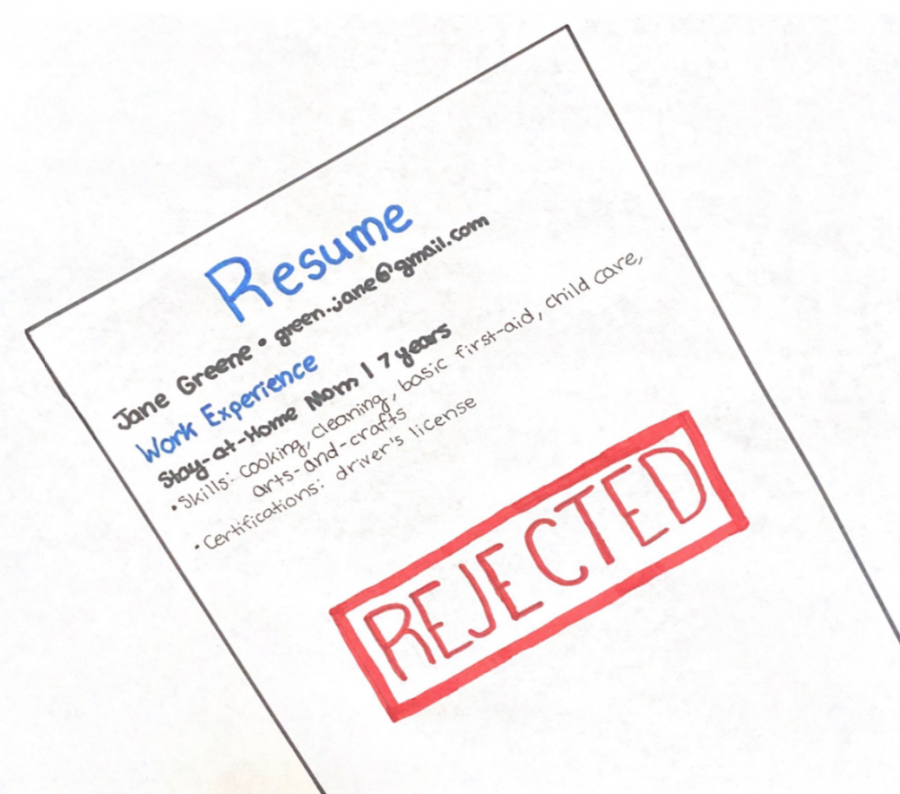Of all the challenges that COVID-19 has brought about, perhaps the most grueling one has been given to parents.
The workforce has long held a bias against working parents, especially working mothers. Childcare demands are heavy and working parents have been put on overdrive without the help of childcare providers or in-person schooling.
A CNBC article cited a report about women in the workplace and wrote that “one in four women are considering downshifting their careers or leaving the workforce due to the impact of Covid-19.”
This staggering statistic is likely the result of the disproportionate responsibilities in childcare that women face.
Parents have been forced to become at-home teachers, nurses, counselors and chefs, all while maintaining a job that puts food on the table. The pressures of all these responsibilities are straining the already overwhelmed working parent.
Above all, though, we must ask ourselves what lies at the core of the problem. The pandemic did not occur in a vacuum.
There’s a reason that some countries are doing better than others. COVID-19 may have exacerbated many of the issues that people face every day, but it did not entirely create them.
If anything, this pandemic has brought to light the many failures of our pre-existing systems. For far too long, the word “parent” has been a whisper in job interviews, an obstacle that job applicants have to overcome.
According to a 2018 study in the American Sociological Review, parents who are “pushed out” of work because of workplaces that are “inflexible and intensely demanding” are “kept out” because of “reduced job opportunities when attempting to regain employment.”
The same study showed that although mothers are more likely to exit the workforce for childcare reasons, fathers who do the same face harsher penalties.
The workplace is not conducive to parenting, whether parents choose to take time off to take care of children, a task disproportionately done by and expected of women, or they choose to do both.
The pandemic has brought this issue into the limelight and has forced people to look at how deeply unyielding work culture is to the responsibilities of parents and caretakers alike. The time has come for that to change.
If companies and businesses are really as progress-driven and forward thinking as they often claim to be at their profiting convenience, then it’s time for them to put their money where their mouth is.
An employer cannot claim to be empowering women when the business is less likely to accept a working mother or a mother re-entering the workforce than a candidate without children.
If employers continue to stigmatize and punish parents for having responsibilities outside of their work, including raising children, then they are actively working against women’s progress.
If fathers continue to face harsher consequences for choosing to care for their families, then equality in the workforce and at home will cease to exist.
Parenting is not just a stumble on the path to professional success. Childcare is an important aspect of our society that determines the outcome of the next generation.
Employers need to begin acknowledging the fact that childcare is a significant aspect of most people’s lives and that effort put into childcare is not an effort taken out of doing paid work.
Childcare is actually an experience that could make a stronger employee. The stigma of being a working parent ignores the many skills that parents gain while raising children. The COVID-19 pandemic has shown us the master multitaskers that parents could be.
In addition, parents often gain skills in time management, conflict resolution, organization and communication. These are all skills that would otherwise be formally included in a resume if they were gained working at a company or firm.
If paid work continues competing with childcare, then everyone loses. Businesses lose employees who gain unique skills as parents, and parents lose opportunities outside of their home. Luckily, it’s not a zero-sum game.
One point for childcare is not a point taken away from paid work. Our workforce needs to adapt to the future where men and women share responsibilities at home so women do not have to choose between professional development and having a family.
If working parents continue to be seen as a liability instead of an asset, then advancement will be further away from reality. Being a parent should not be the dirty secret of those seeking employment.
People’s qualifications should not be judged based on what the workplace culture has deemed as the norm, but rather on the breadth of skills their experiences generate. Childcare can be just as rewarding as a job at Goldman Sachs, and it’s time for employers to treat it as such.




